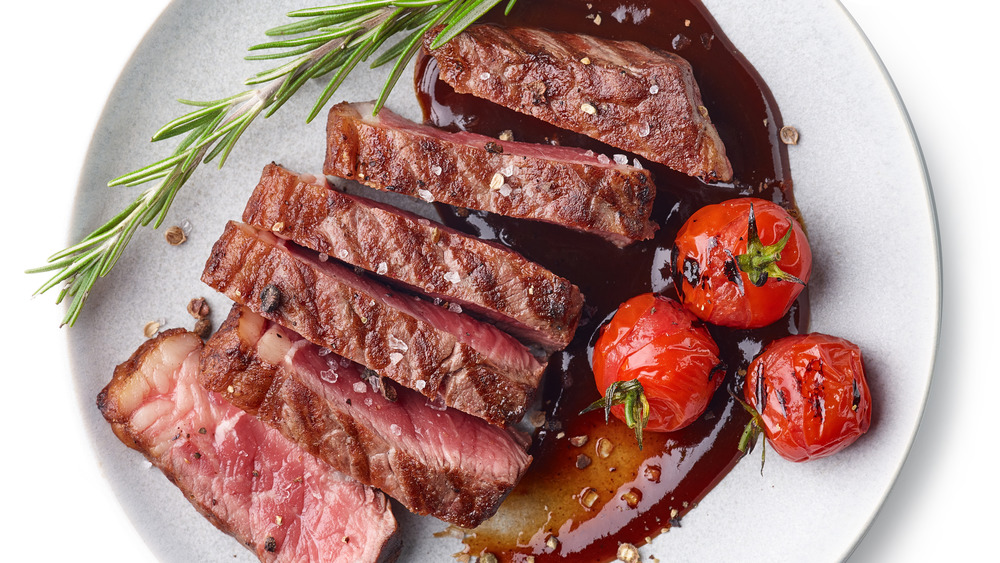Eating Excessive Meat Could Affect Children's Health, Study Finds
A component often found in cooked meats could cause wheezing and asthma-related symptoms in children, a new study states (via Eat This, Not That!). The study, published in December in the medical journal BMJ, looked at the diets and health of 4,388 children from 2003 to 2006 using data from the National Health and Nutrition Examination Survey, a program of the U.S. Centers for Disease Control and Prevention that examines a nationally representative sample of about 5,000 people each year. The BMJ study found an association between the frequency of meat consumption, "dietary advanced glycation end product (AGE)," and respiratory symptoms.
AGEs accumulate naturally as you grow older, according to Healthline. These compounds form when fat or protein combine with sugar in the bloodstream, or when foods have been exposed to high temperatures, such as toasting, frying, or grilling. Previous studies have linked high levels of AGES to inflammation, heart disease, diabetes, kidney failure, Alzheimer's disease, and premature aging.
Reduce risky components in meat by shortening cooking times and using lower heat
The study published in BMJ found that children with a higher intake of AGEs and "non-seafood meats" had higher odds of "wheeze-disrupted sleep" and "wheezing requiring prescription medication." "Our study builds upon prior work that suggests diet may play a role in airway health and asthma-related symptoms," says Sonali Bose, MD, the study's senior author and Assistant Professor of Pulmonary, Critical Care and Sleep Medicine and Pediatrics at Icahn School of Medicine at Mount Sinai Hospital in New York City. "The results suggest a link between a component commonly found in cooked [meats] to wheezing in children."
Bose adds that regardless of the "overall healthiness of the diet," the presence of dietary AGEs put the children at risk. The U.S. National Center for Biotechnology Information recommends reducing the AGEs in your diet by using shorter cooking times, cooking with "moist heat," cooking at lower temperatures, and using acidic ingredients such as vinegar or lemon juice.


